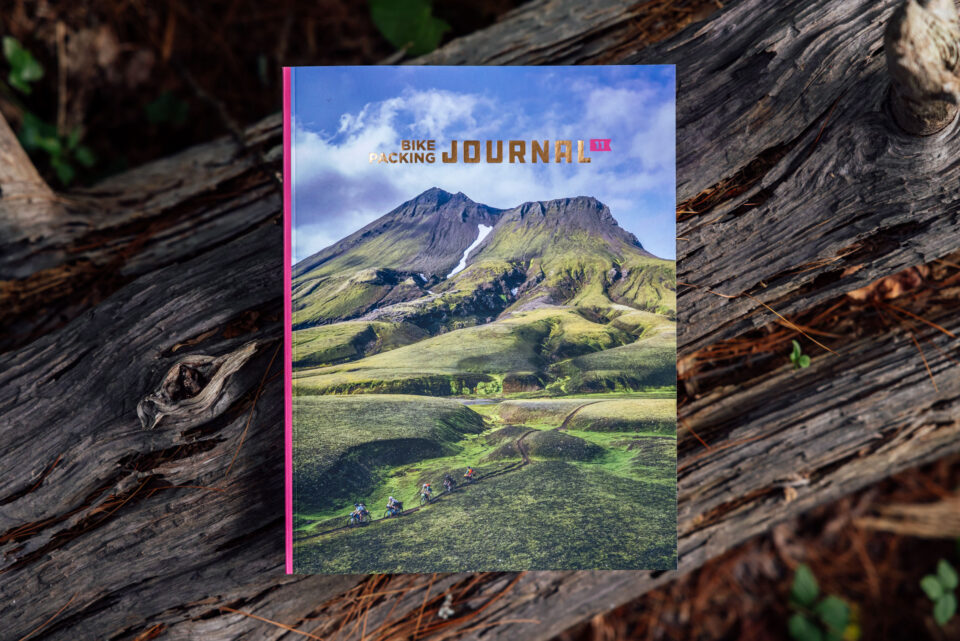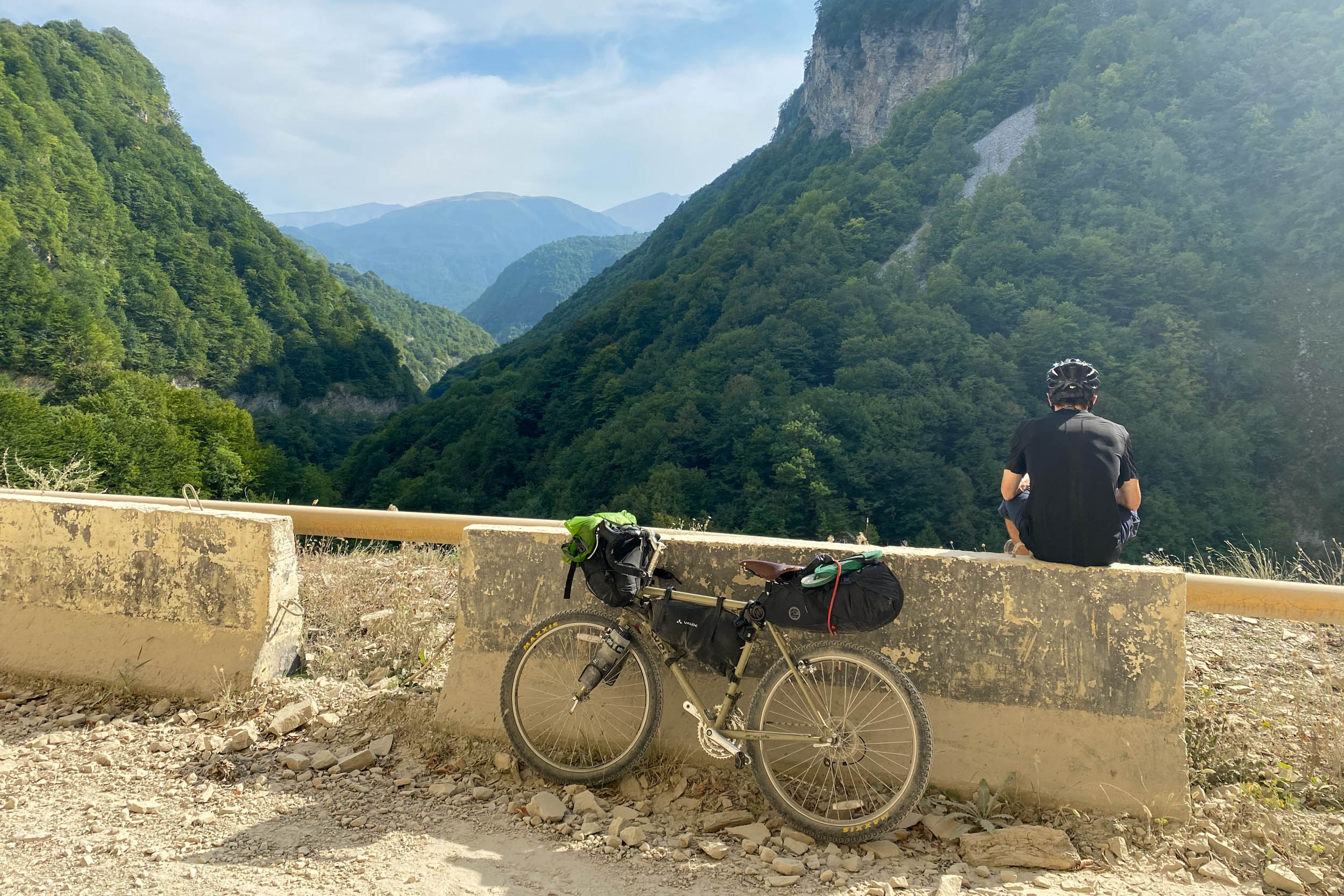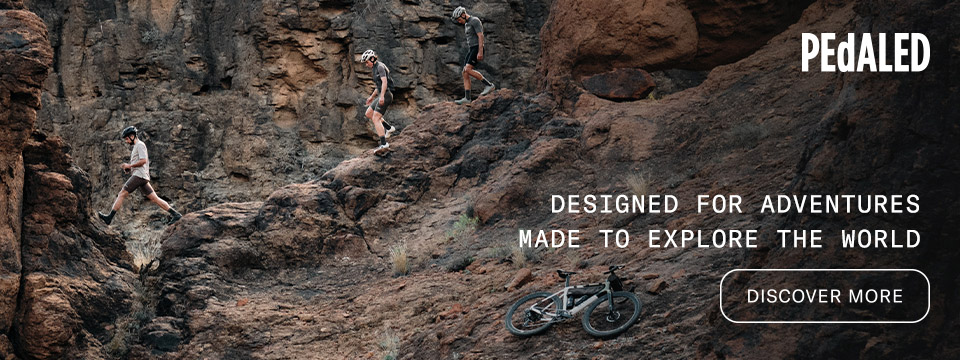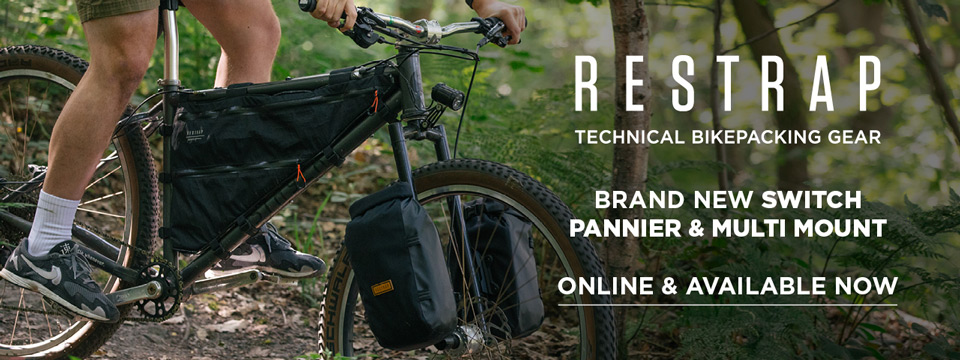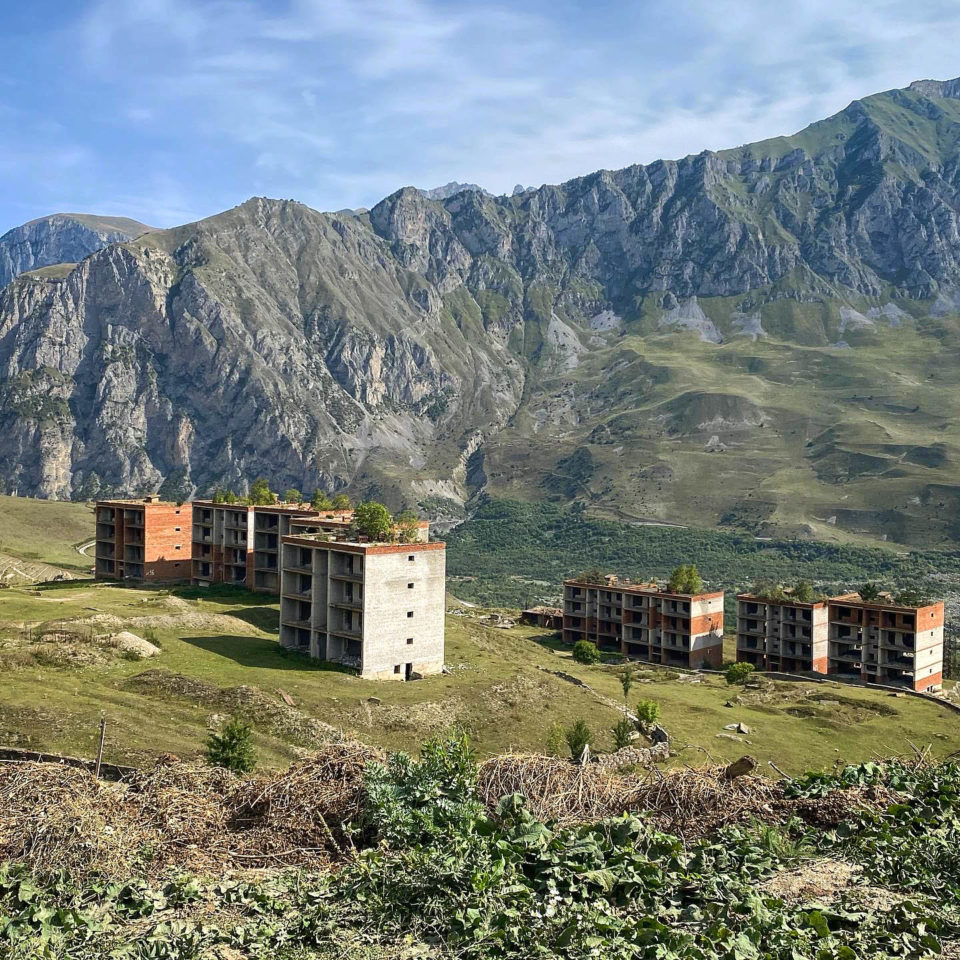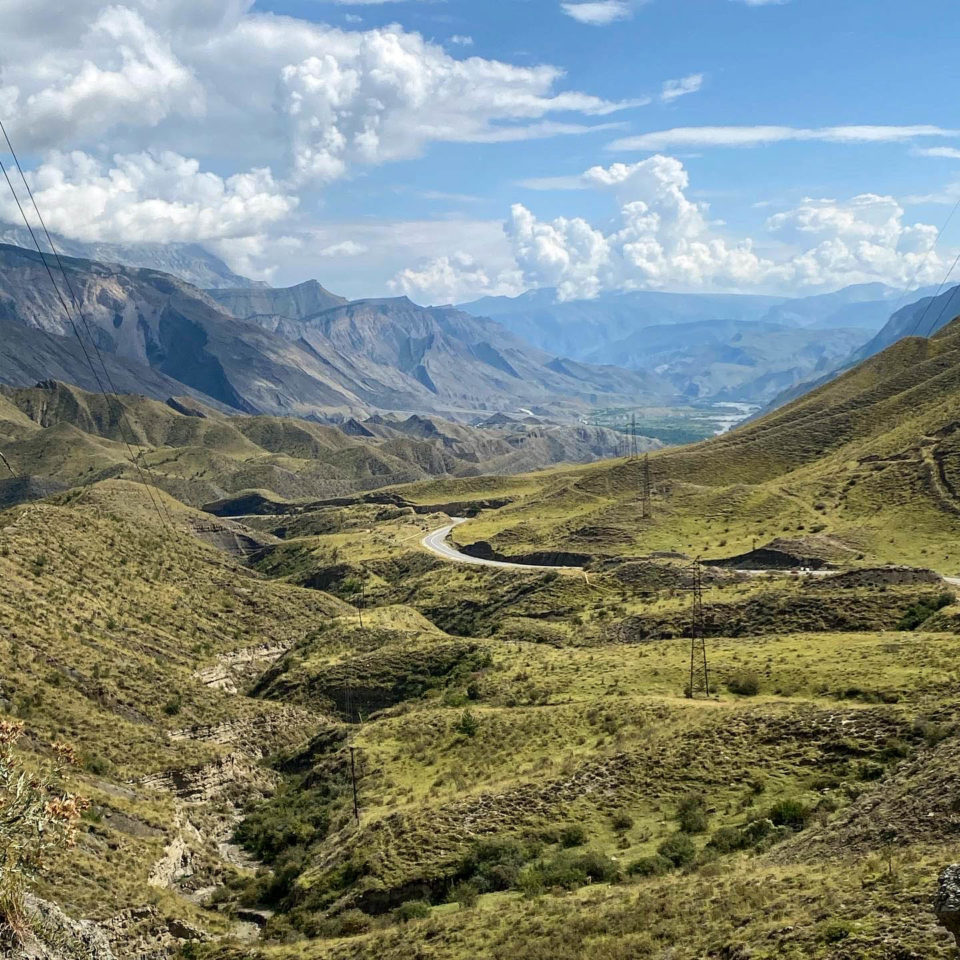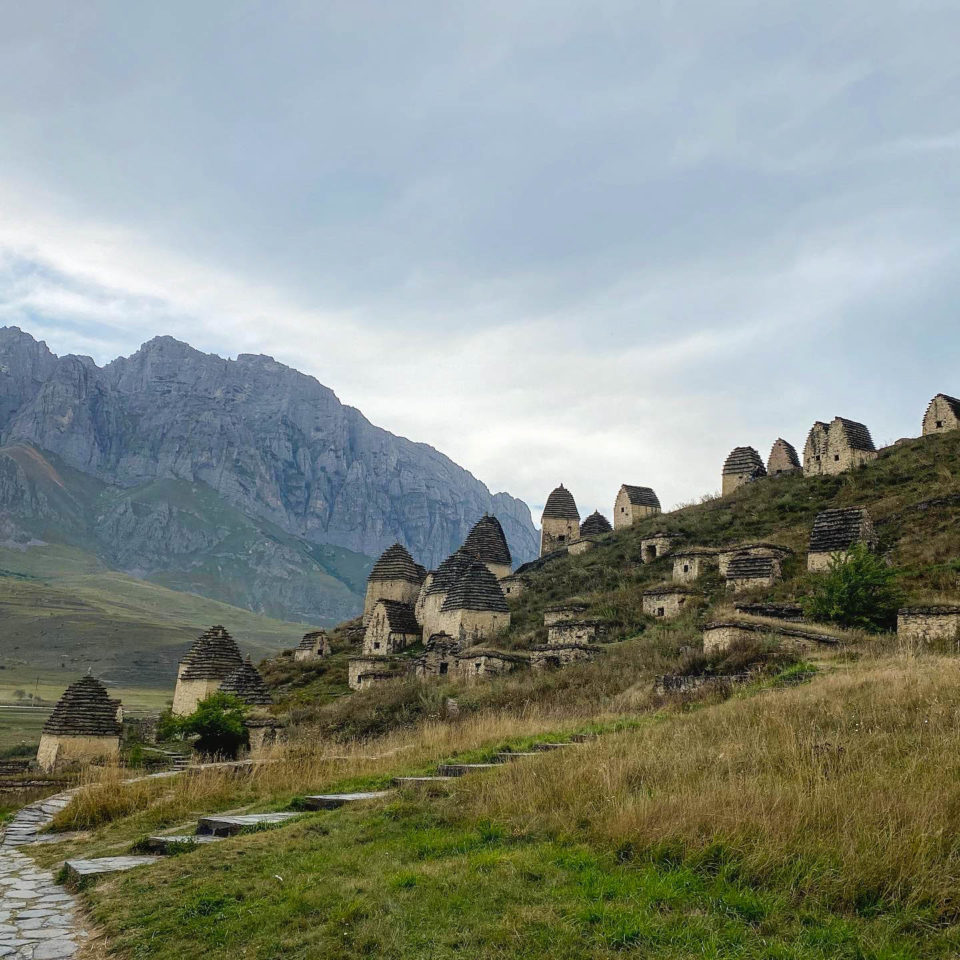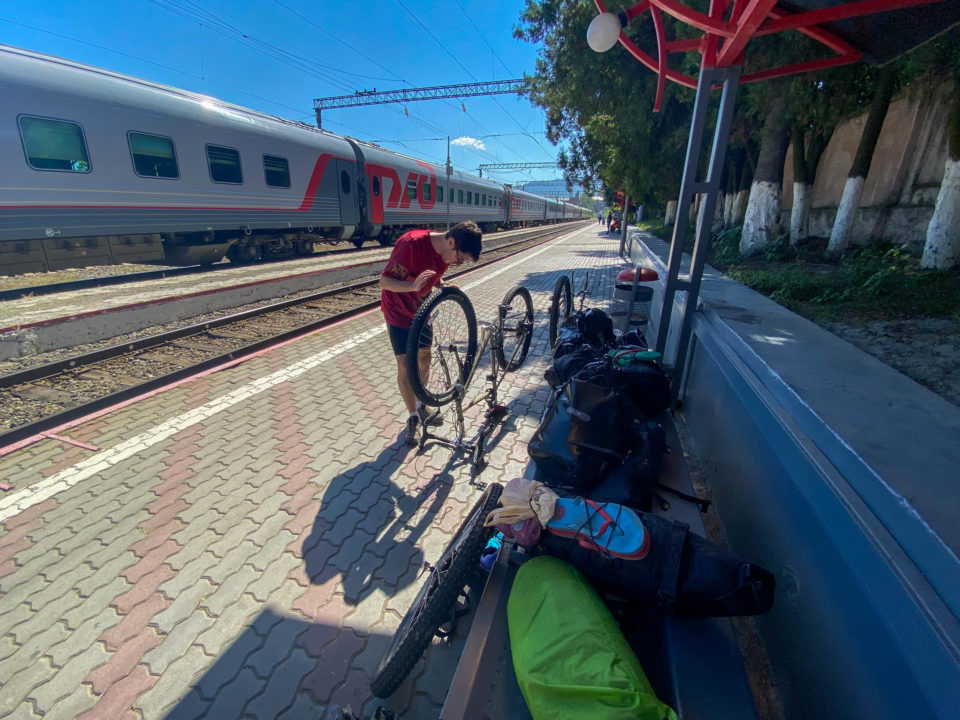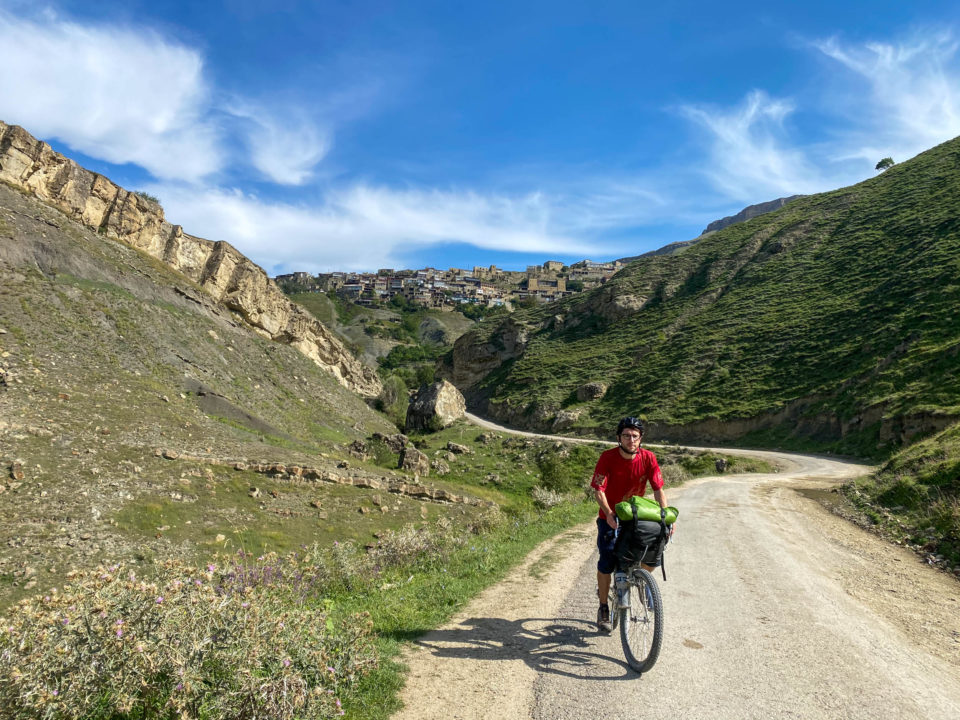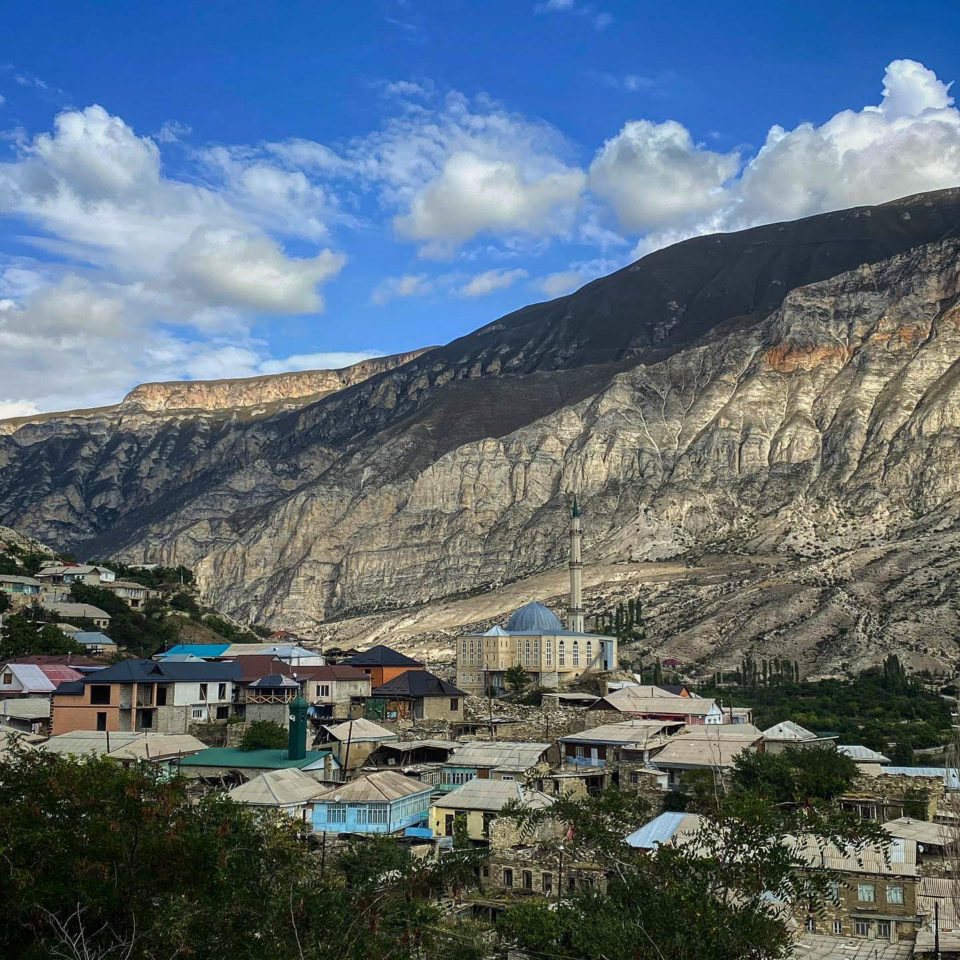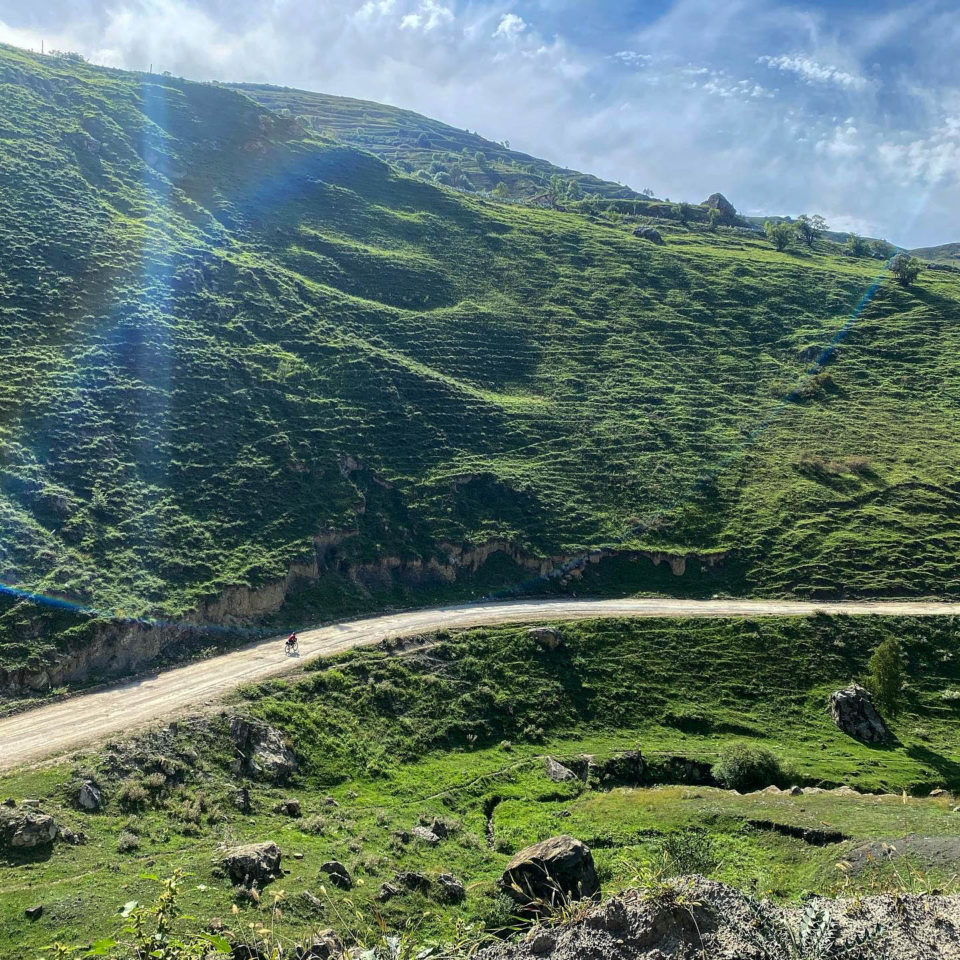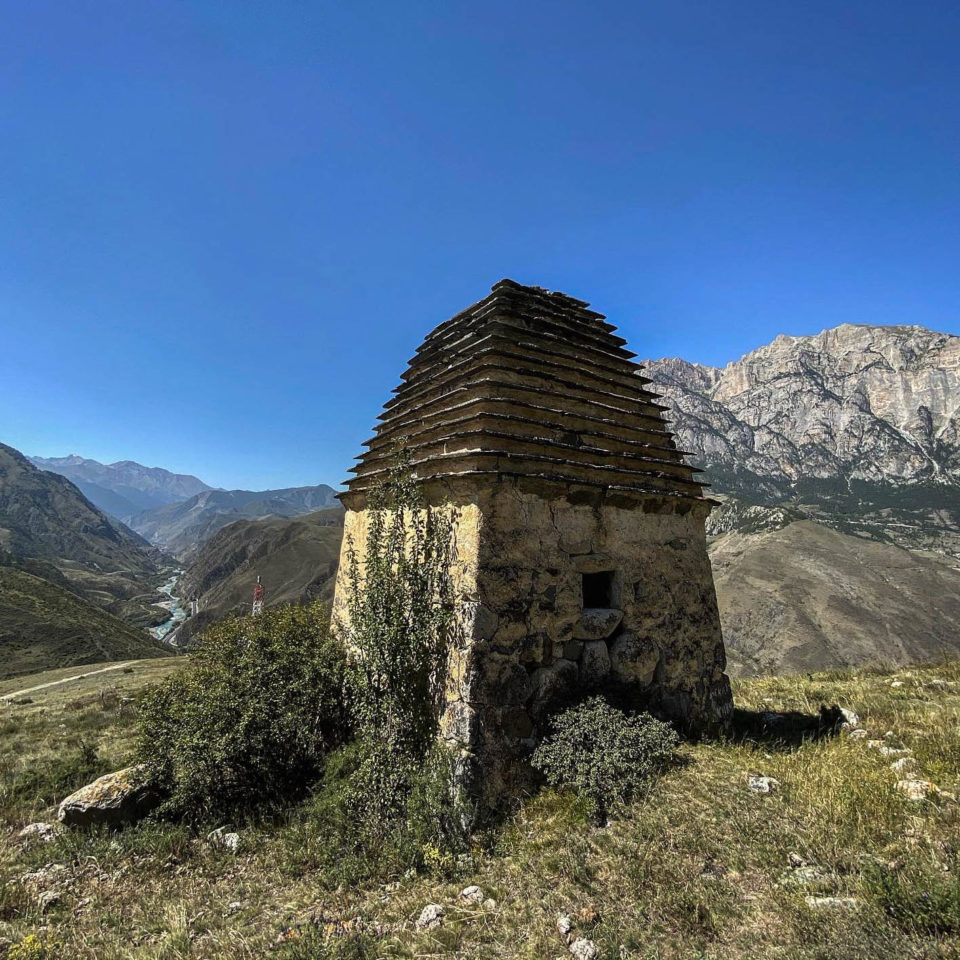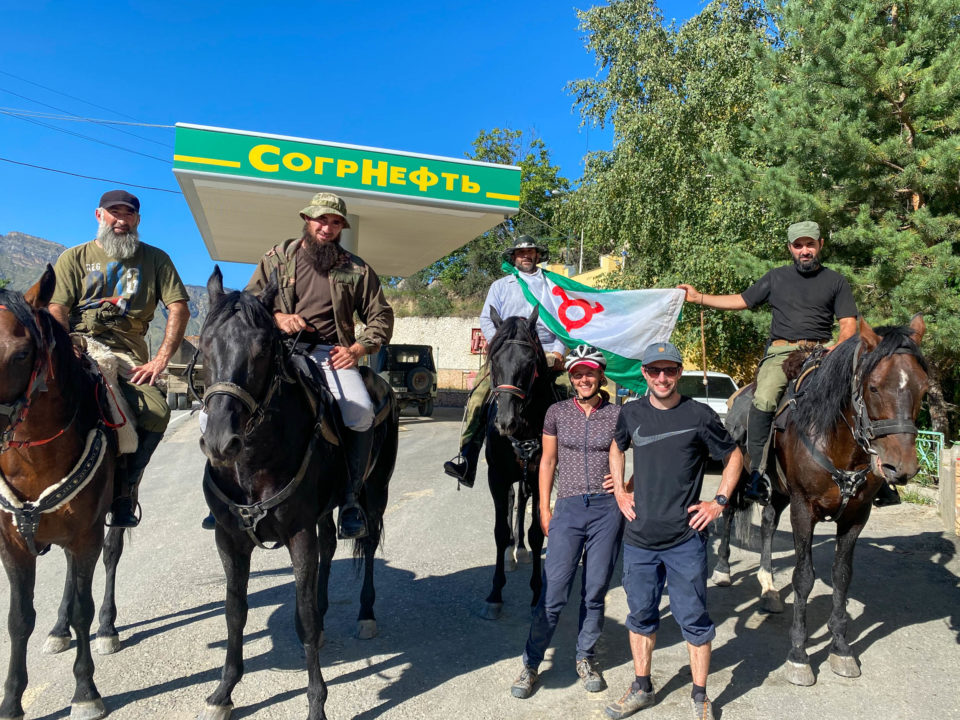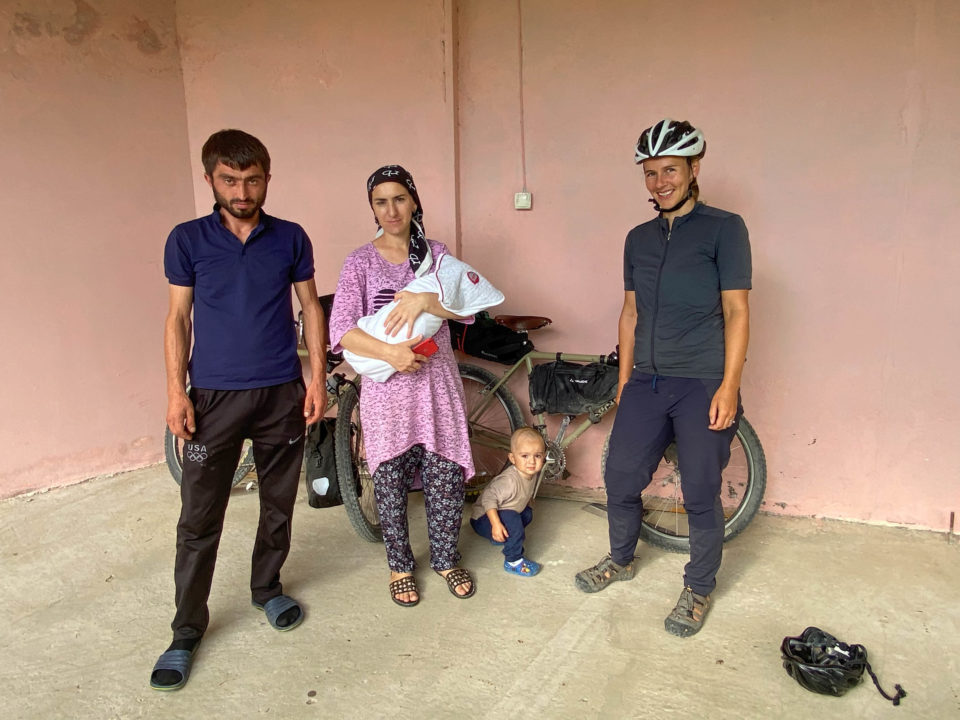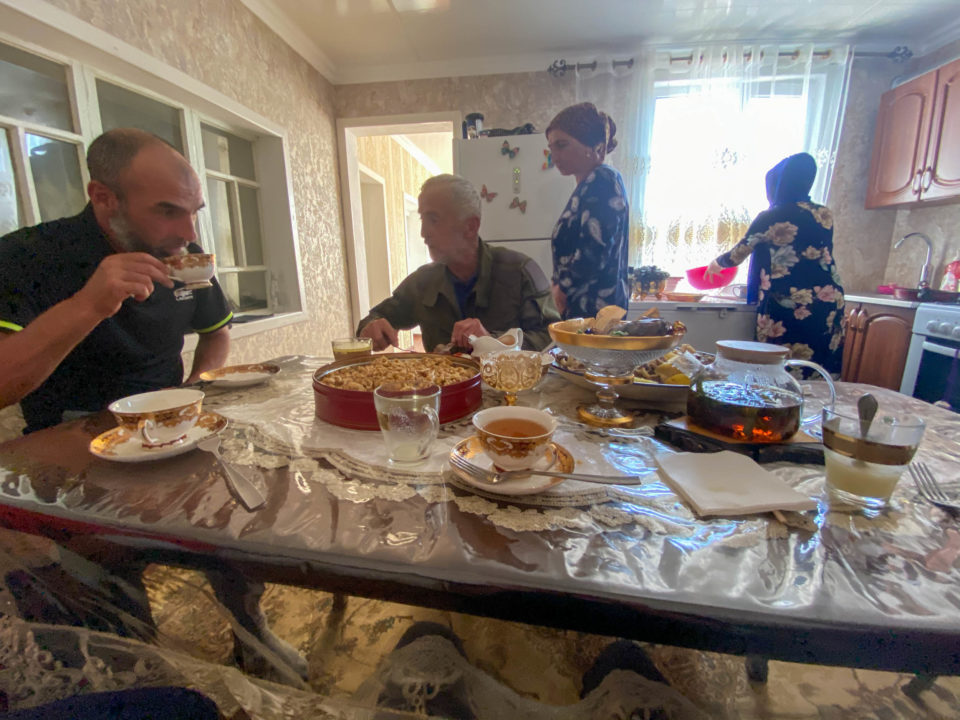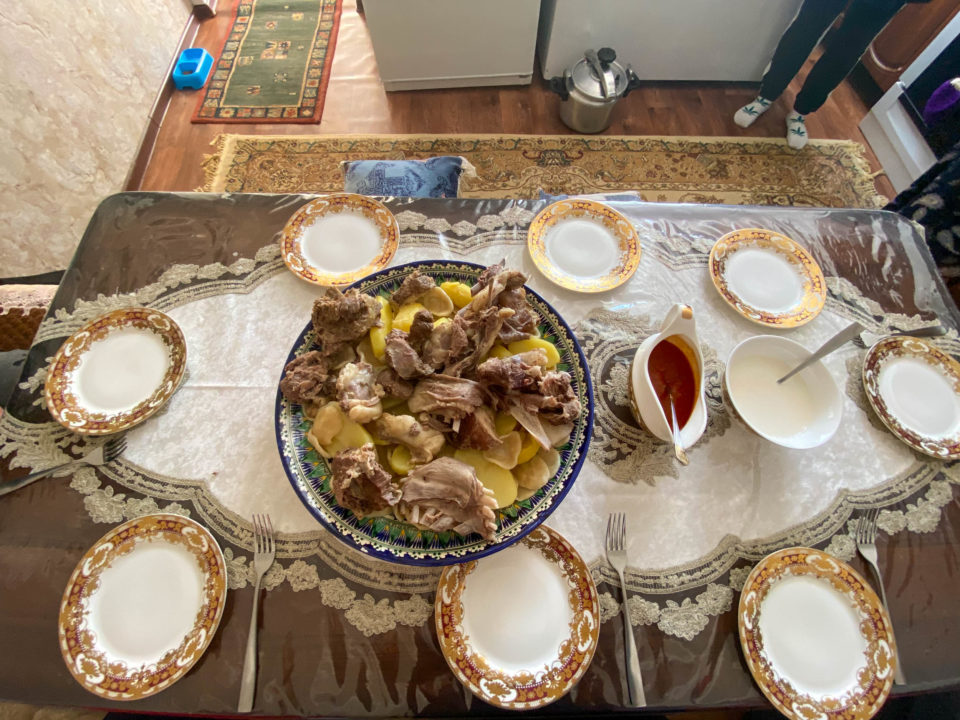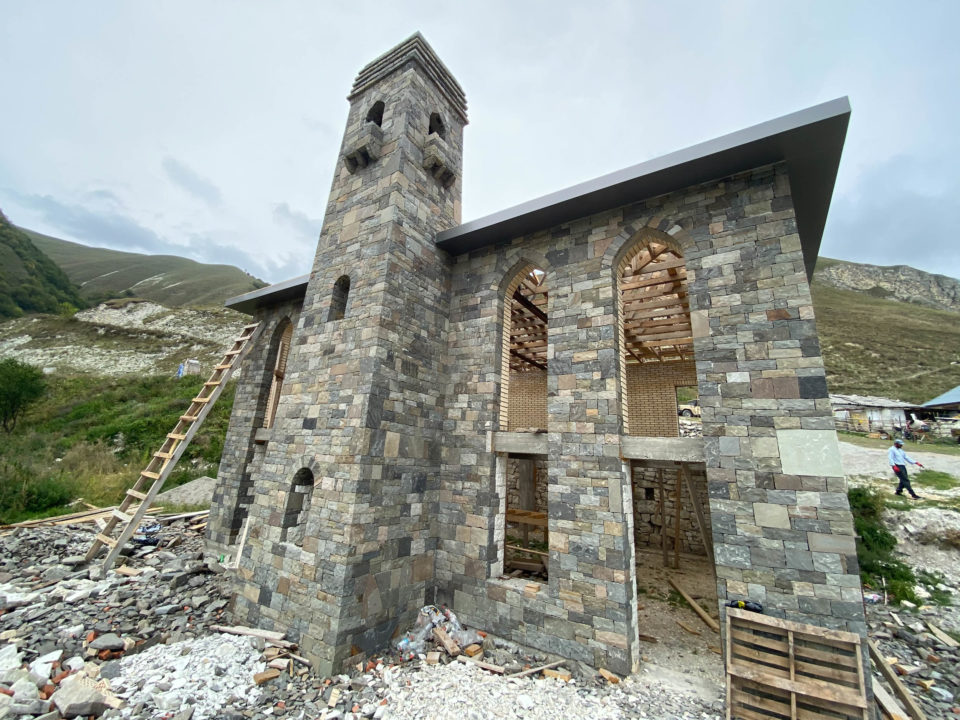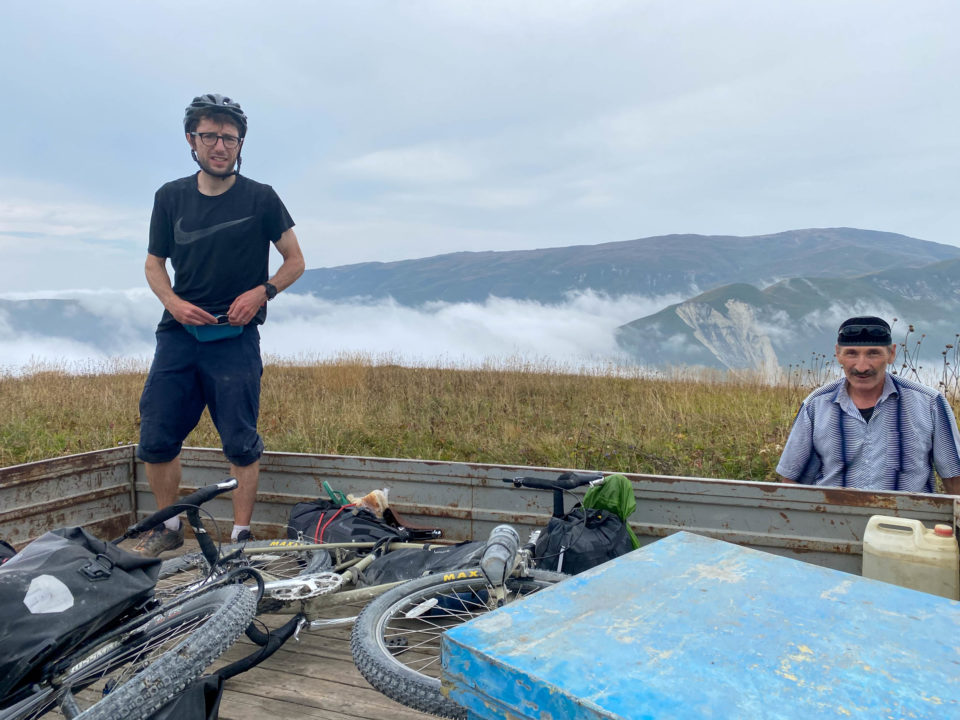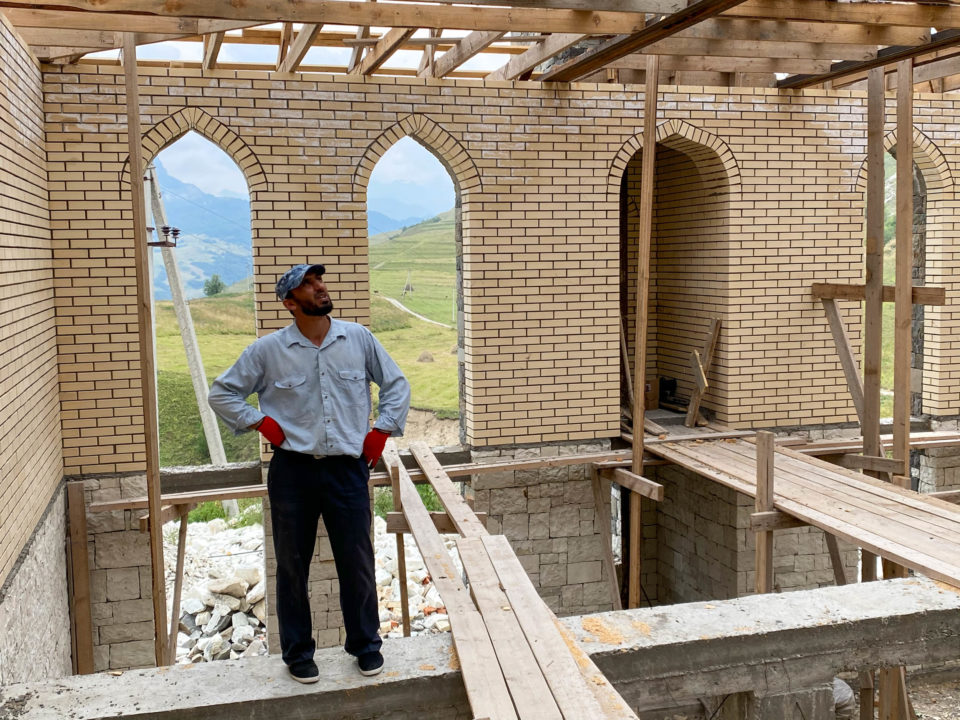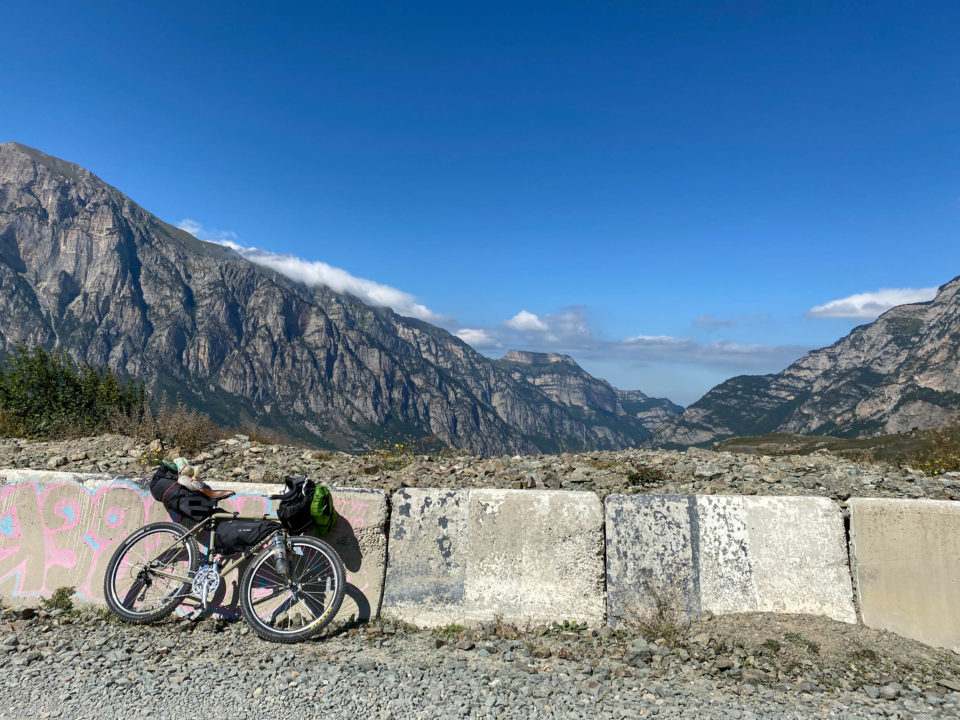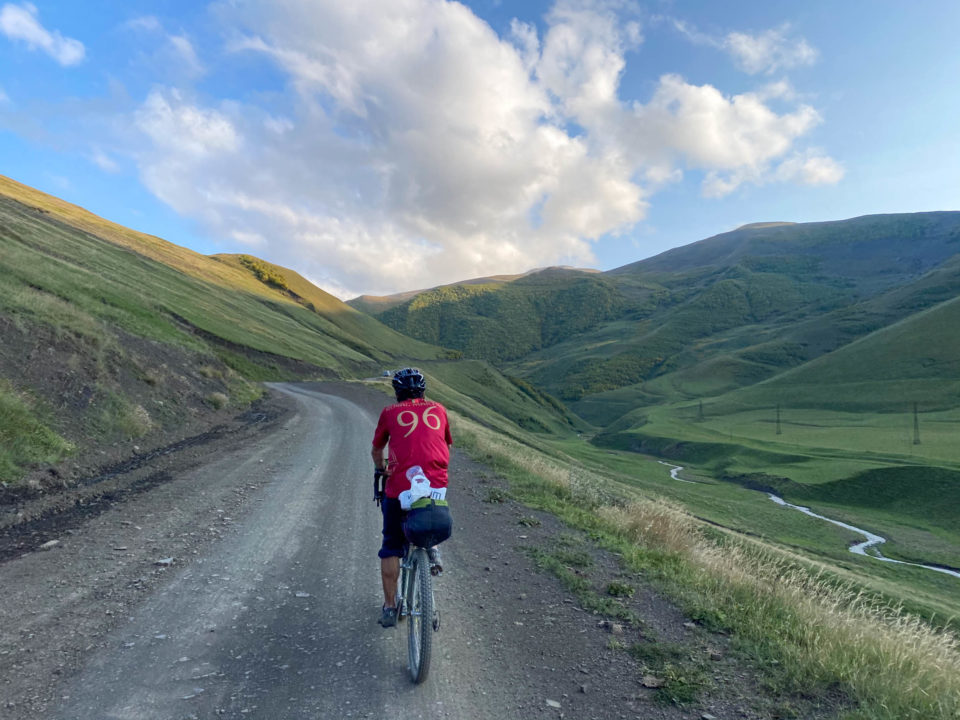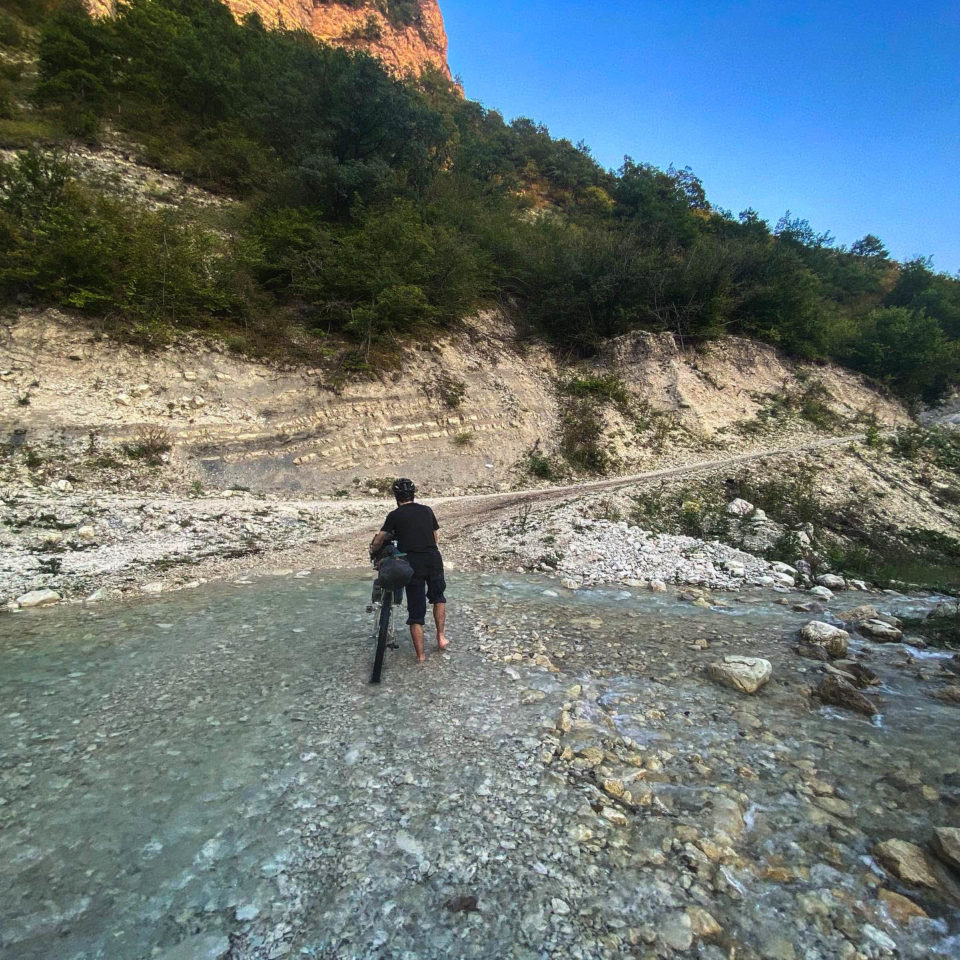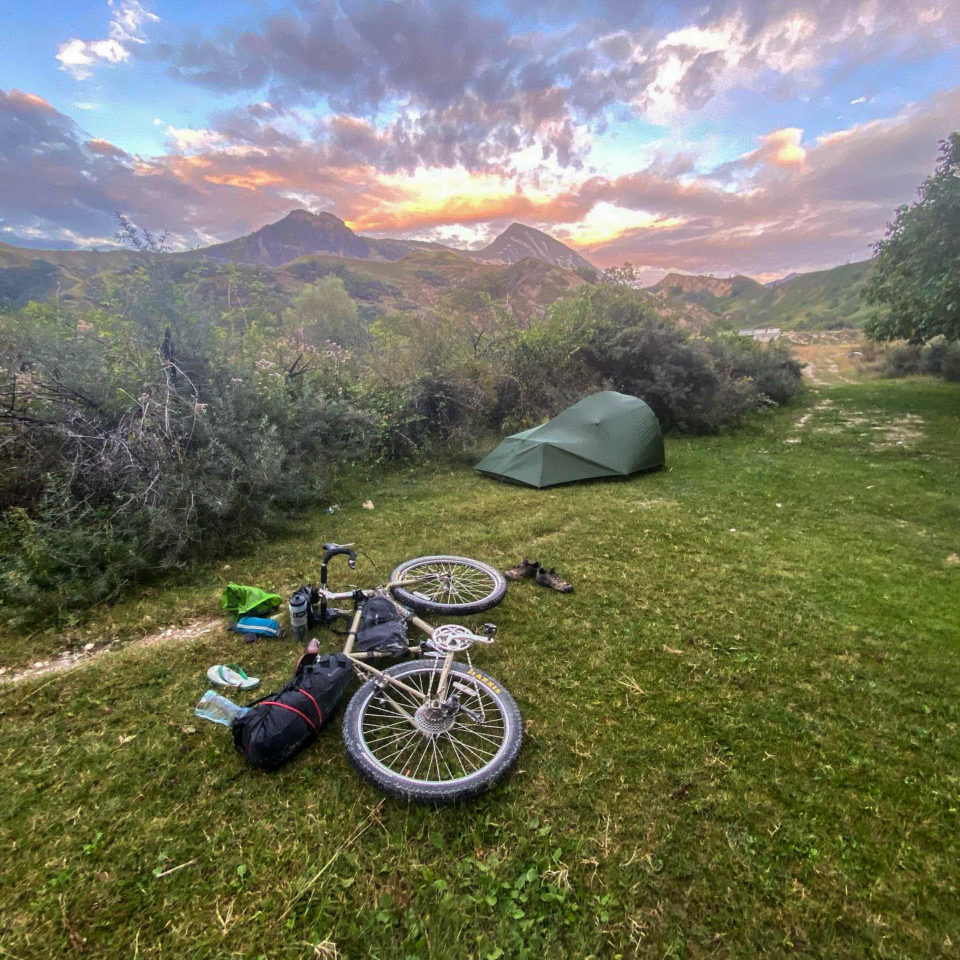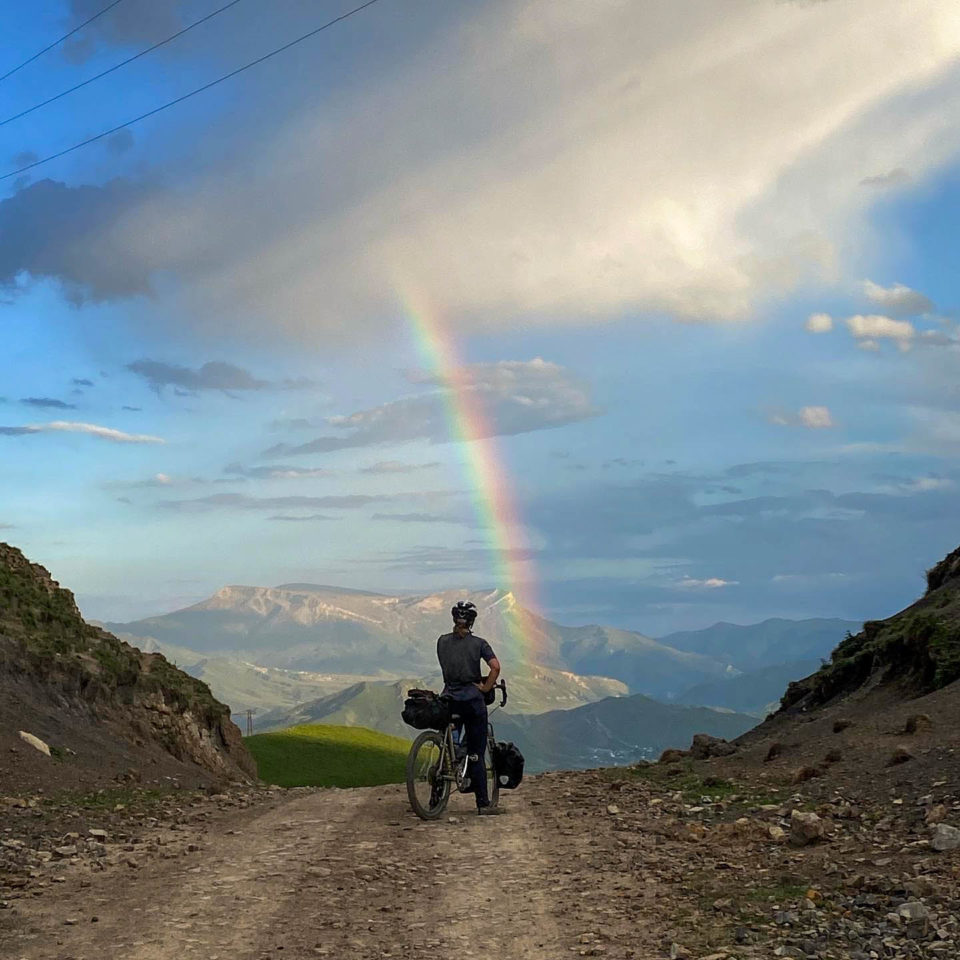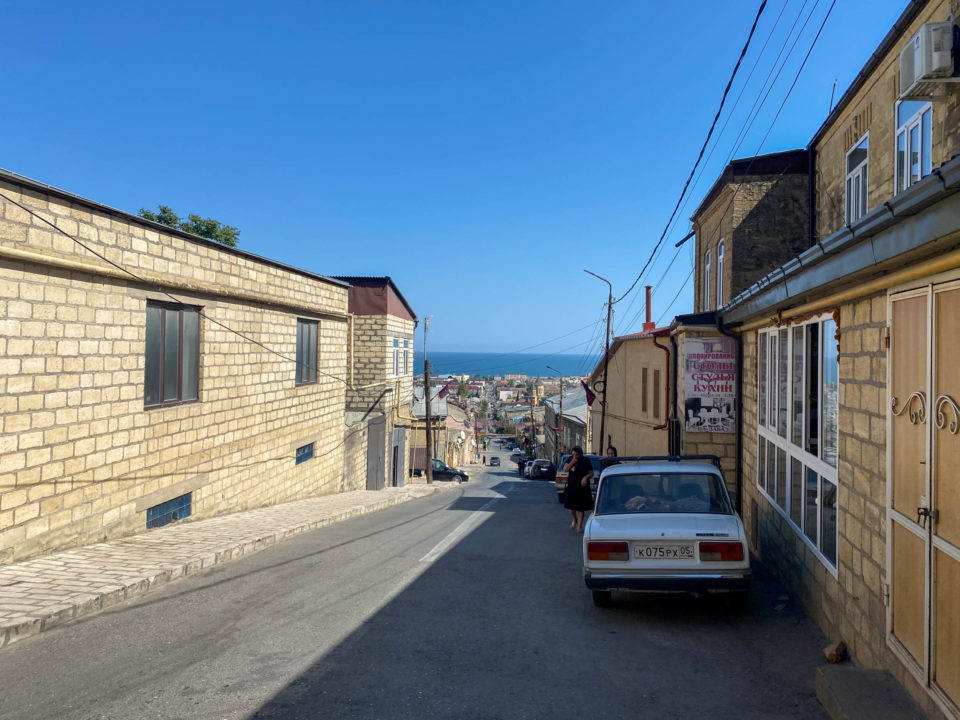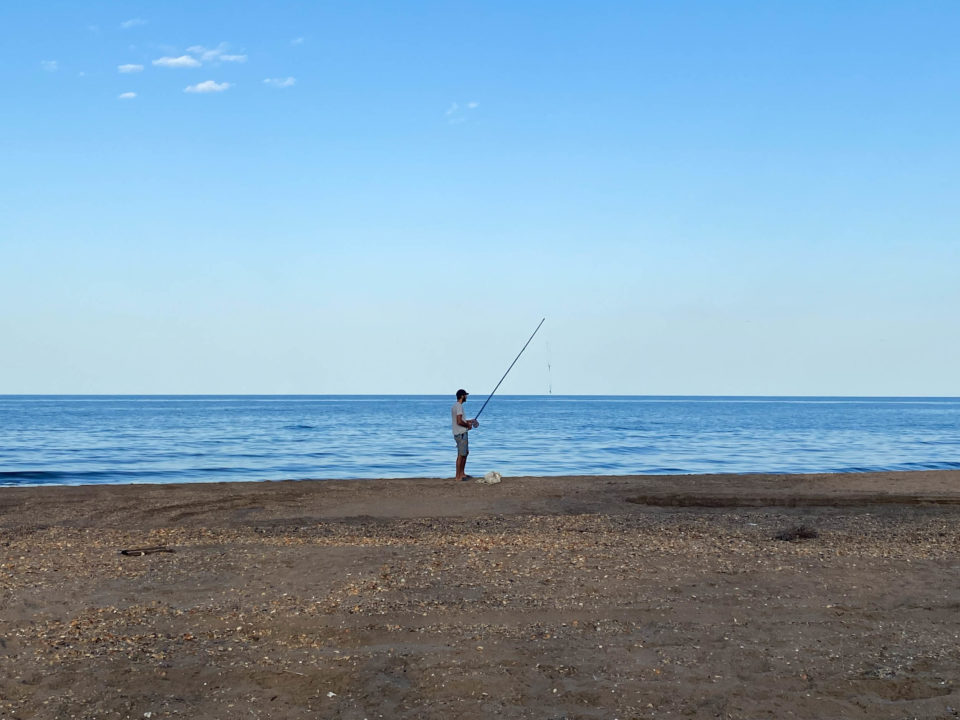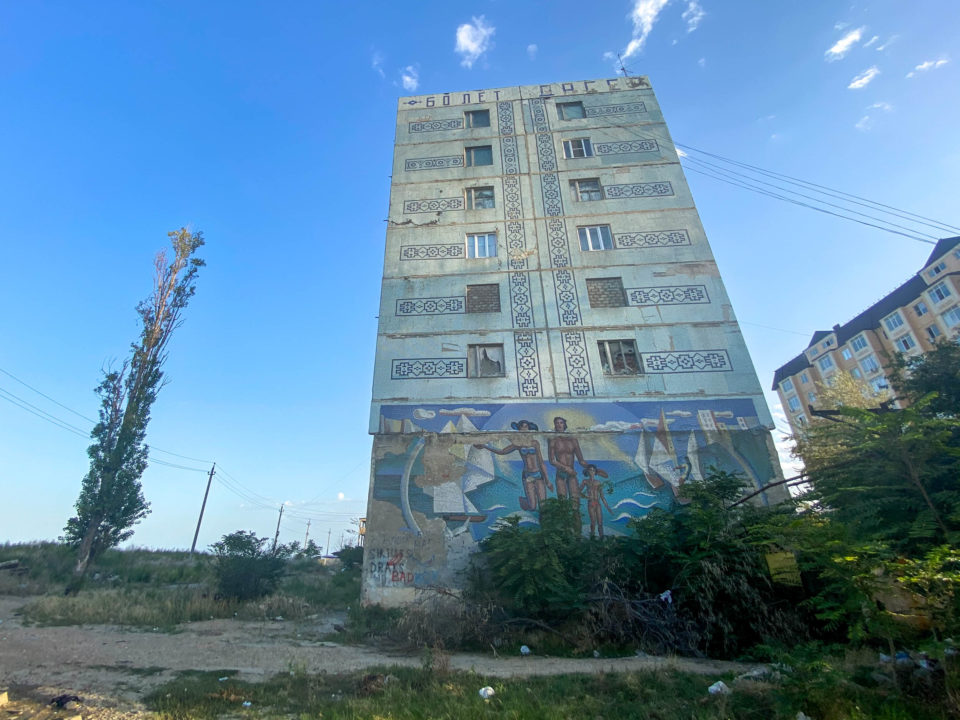North Caucasus: Bikepacking Russia’s Danger Zone
Stranded in Russia when borders closed due to the pandemic, Natasha Doff and her husband embarked on a three-week bikepacking trip across North Ossetia, Ingushetia, Chechnya, and Dagestan. Warned of danger around every turn, they instead found stunning landscapes, empty gravel roads, and welcoming people. Find their story here…
PUBLISHED Feb 1, 2021
Words and photos by Natasha Doff (@natasha_doff)
The North Caucasus has always been synonymous to me with danger. I grew up hearing about the brutal Chechen wars in news reports long before I began studying Russian. My first solo trip abroad to volunteer in an orphanage near Moscow in 2004 was overshadowed by the deadly seize of a school by Chechen terrorists. When I landed my first job as a translator at a Russian newswire five years later, the reports of battles with insurgents were so frequent we were told to skip them unless the death toll was grotesquely high. One morning during my commute, suicide bombers from Dagestan blew up two metro carriages in the city centre, killing 40 people. I can still remember the eerie silence in the metro as I rode the train to work on a different line.
In the past few years, since moving back to Moscow, my husband Andy and I have spent countless hours poring over maps of Russia and the former Soviet Union, planning and implementing bikepacking adventures in Georgia, Armenia, Kyrgyzstan, and Altai. But I’d managed to train my eyes to skip over the North Caucasus.
We’d long been planning a big trip across Central Asia for 2020, but the global pandemic had other ideas. As the end of winter drew closer, borders shuttered in country after country, until we were left stranded with our bikes and maps in a small apartment in the centre of Moscow.
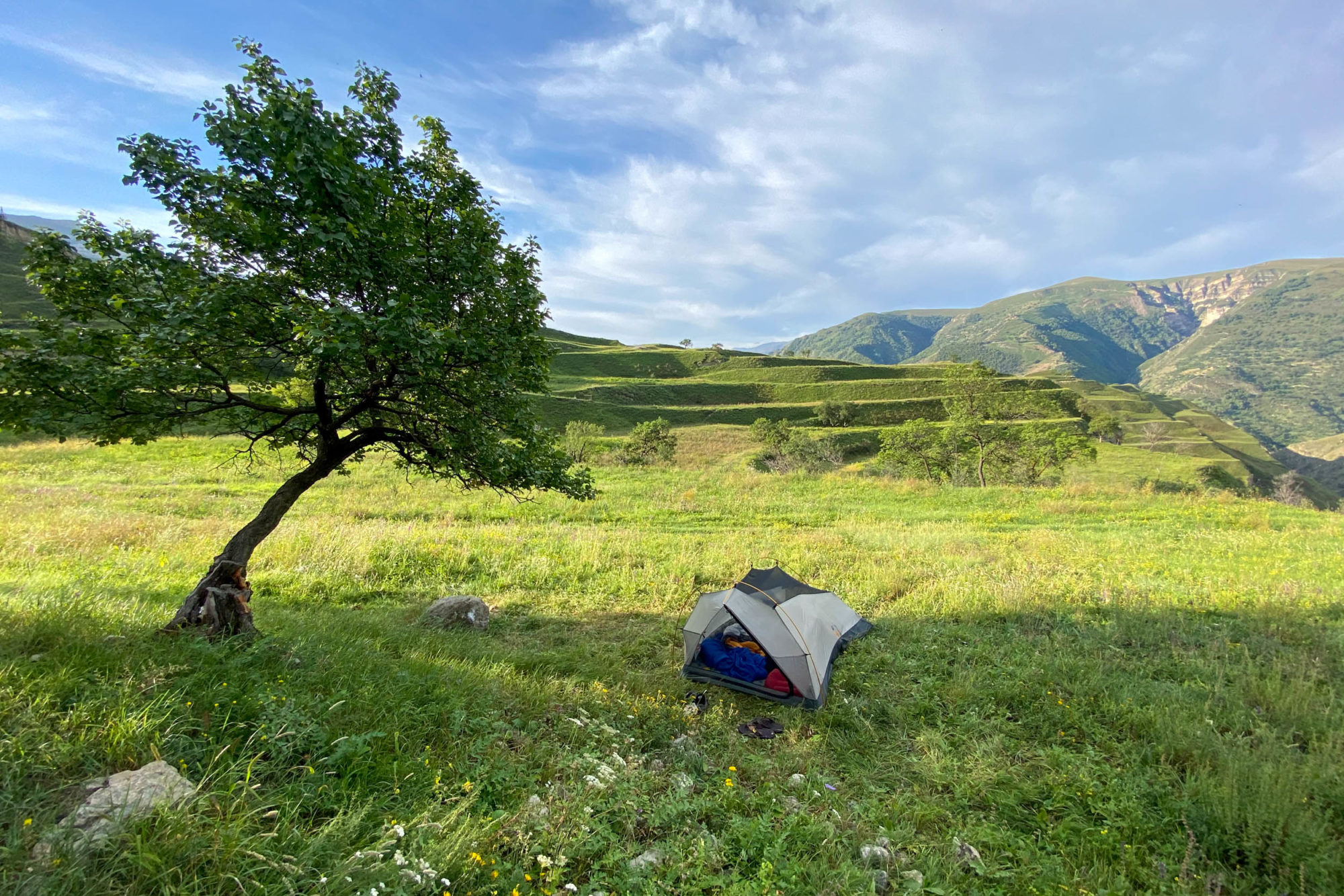
At first we thought we could wait it out, but even as restrictions were gradually lifted in Moscow, it became clear that borders weren’t going to open any time soon. We started searching for options that didn’t involve leaving Russia. Quite by chance, I came across a detailed blog post by a German cyclist who’d bikepacked across Chechnya and Dagestan in 2019. I started tracing his ride on the one part of our map that I’d never really looked at before. It wasn’t long before I couldn’t look anywhere else, so enchanted was I with the possibilities of those mountain trails.
We arrived in Vladikavkaz, the capital of North Ossetia, at 10 a.m. on a Sunday morning after a 36-hour train ride from Moscow. The separatist uprisings that caused more than a decade of war in the Muslim regions of the North Caucasus didn’t spread into Christian Ossetia and we’d decided to do a loop of the republic as a warm-up before tackling Ingushetia, Chechnya, and Dagestan. But if we’d hoped that cycling there would alleviate our fears, we were mistaken. We encountered the scars of terrorist attacks in many places, and prejudices against the Muslims to the east were high. After a few days of being told that people “go missing over there,” we were more nervous than before we’d set off.
Luckily the spectacular scenery gave us enough drive and curiosity to keep going. By our second day we were already climbing up a dirt road deep into the mountains, with views of rocky 4,000-metre peaks on all sides. There are Medieval stone watchtowers with slate roofs scattered all over this region and most days we’d cycle right past a few of them. Our route also took us through Dargavs, a 14th-century Necropolis made up of almost a hundred little white tombs with pointed roofs that echo the surrounding peaks. When we peered inside we discovered that each one was filled with bones.
The road east out of Ossetia was deserted because the locals have no reason to travel to what many consider to be a land of terrorists. When we crossed into Ingushetia, we noticed there were more armed police stationed on the main road, but ordinary people smiled and waved to us as we passed, just as they had further west. You need a permit to go to the more mountainous parts of Ingushetia and ours hadn’t arrived in time, so we cut straight through to get to Chechnya.
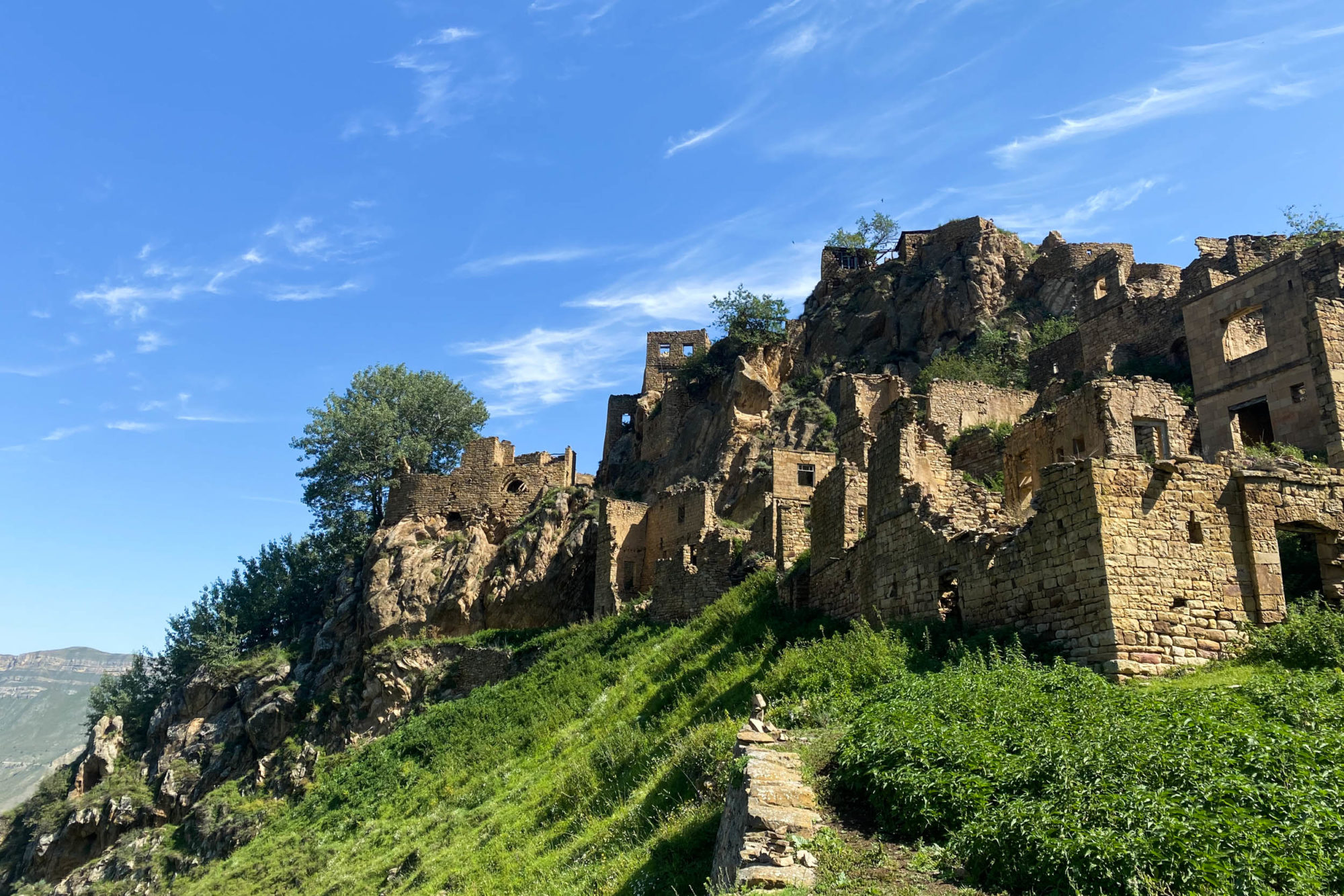
The border with Chechnya looked like it was guarding a country, not a region of Russia. There was barbed wire and heavily armed men in military uniforms. They were surprised and a bit bemused to see us but let us through without much bother. Once over the border, we started climbing back into the mountains, and the fear we’d been carrying for days slowly started to lift with every encounter we had along the road.
And the encounters were many. Practically every car we passed stopped to ask if we needed help. Often, when we got talking and told them we were from Britain, a whole family would get out to welcome us properly. After a few days, my phone contact book had become crammed full of new numbers that people had insisted we take in case we got into trouble. We never needed them because all we encountered further down the road were more people who wanted to help us.
The mountains in Chechnya aren’t as dramatic as in Ossetia and the landscape is characterised more by soft rolling hills than rocky peaks. The cycling was still incredibly challenging though, and some days it felt like we were pushing uphill for hours on end, covering minuscule distances. But when we did reach the top, we were often rewarded with views across lush mountain plains, dotted with little shepherd huts and grazing cattle. Eagles circled above us as we cruised along the top, sometimes so close that we could hear the beat of their massive wings.
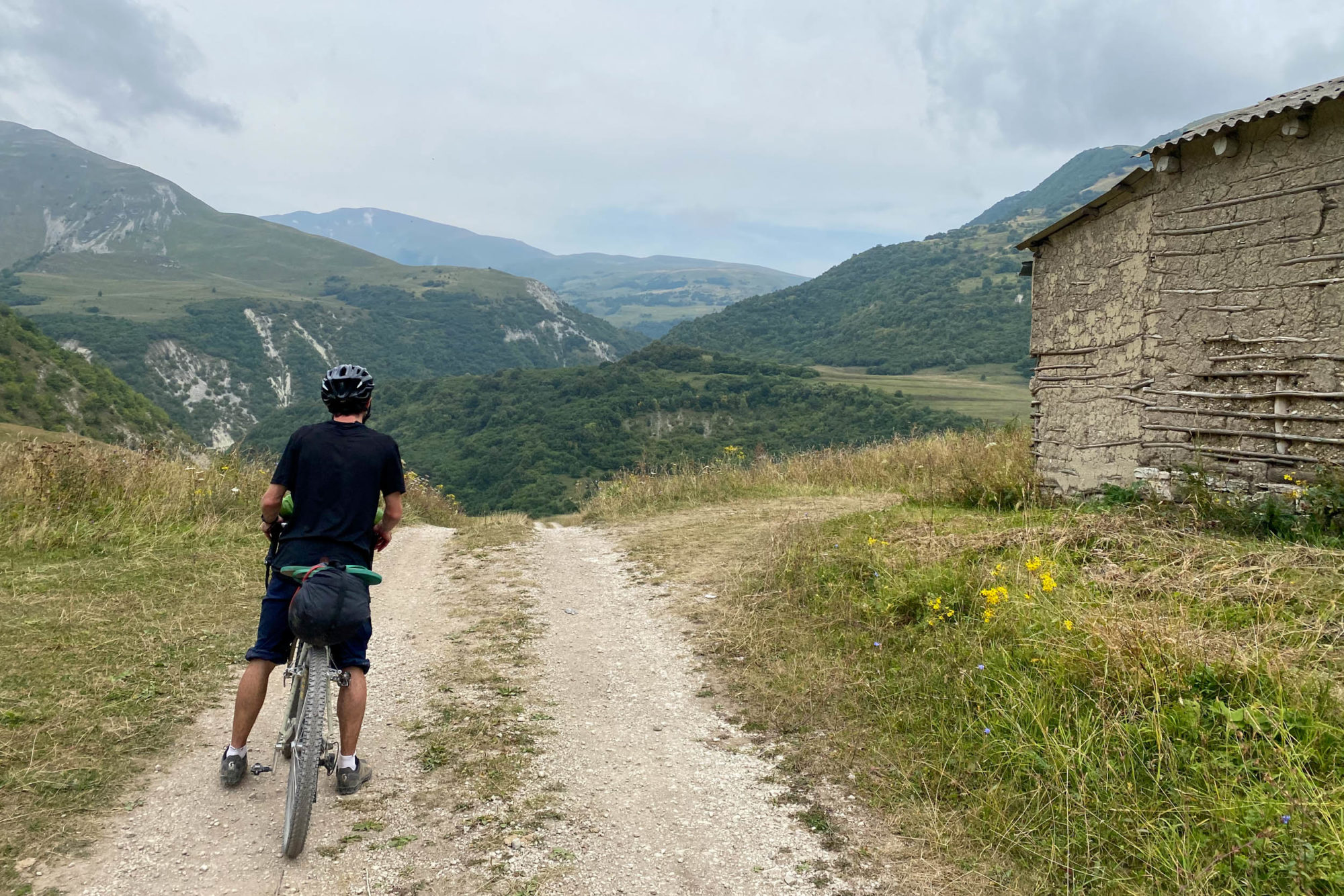
One morning we were pushing our bikes up a particularly steep stretch of track, miles from the nearest village when a white van approached from the opposite direction. The van stopped and so did we, and a youngish bearded man wearing a gun in a holster got out and walked towards us. He asked where we were going. Slightly apprehensively we told him we were crossing Chechnya by bike. His face broke into a smile: “Oh, in that case, I’ll call my family further up the road and tell them to make you breakfast. You must be hungry.”
When we reached his family home in a remote valley a couple of hours later there were fried eggs, warm bread, honey, and steaming mugs of tea for us on the kitchen table. The family, who lived spread out across several different farm buildings, were reconstructing a mosque that had been destroyed many years before and they gave us a tour of the empty shell, with huge windows looking out on the surrounding mountains.
The Second Chechen War ended only a decade ago, and of course there was an undercurrent of sadness everywhere we went. We saw bombed out buildings that no one had gotten around to repairing, and a man we had lunch with told us he’d had to bury seven family members in one day. He mentioned it almost in passing but afterwards he seemed so overcome with grief that he barely spoke another word.
On one day we accepted a lift up a particularly steep hill from a beekeeper in a truck, who told us that the whole valley we were in had been completely flattened by Russian bombs, aimed at separatists who had passed through weeks before. Miraculously, his house had survived and it became a kind of shelter for anyone in need. Concerned that we might cause offense by speaking Russian and telling people we live in Moscow, I asked if the locals still bear any grudges for the pain inflicted on them during the war. “No,” he replied. “People just want to live in peace now.”
Then there were the scars left by Stalin’s mass deportation of the Chechen people in the 1940s. The road into Dagestan took us over a plain with a scattering of stone houses, some derelict, some inhabited by shepherds or farming families. We were told by one old man that 120 families used to live there. Now there are just 10.
The trail of destruction followed us into Dagestan. Ansalta, the first town we came to was full of rubble and everyone seemed to be busy reconstructing something. As we travelled further east towards the Caspian the echoes of war grew quieter, but the hospitality remained.
Often in more remote regions, we struggled to find any food to buy, but whenever we asked locals where the nearest shop was, they would invite us into their homes instead, even if it was clear they didn’t have much to share. Sometimes when we did find food, the shopkeeper would insist that we take some items for free—a piece of fresh local cheese, or a packet of biscuits. One even secretly called her friend in the next village to tell her to prepare food for us when we arrived. There was a feast waiting for us.
Our route across the North Caucasus ended at the Caspian Sea and I had dreamed the whole journey of rolling down to the glittering blue water on the final day and resting our legs on the beach. But our final day ended up being a mini adventure all of its own, complete with angry sheepdogs and river crossings, and by the time we got down to the lowlands near the coast the sun was already setting. Faced with the prospect of cycling the final 30 kilometres along an unlit highway in the dark, we were just starting to despair when an old man in a flatbed truck pulled over to offer us a lift.
We couldn’t believe our luck and told our new friend how grateful we were as we got settled in for the ride. He shrugged in response and said: “Allah sends help to good people, so I decided you must be good people or I wouldn’t have passed you.”
I realized then that one final act of kindness was a much more fitting end to this journey across a region we had so unfairly feared.
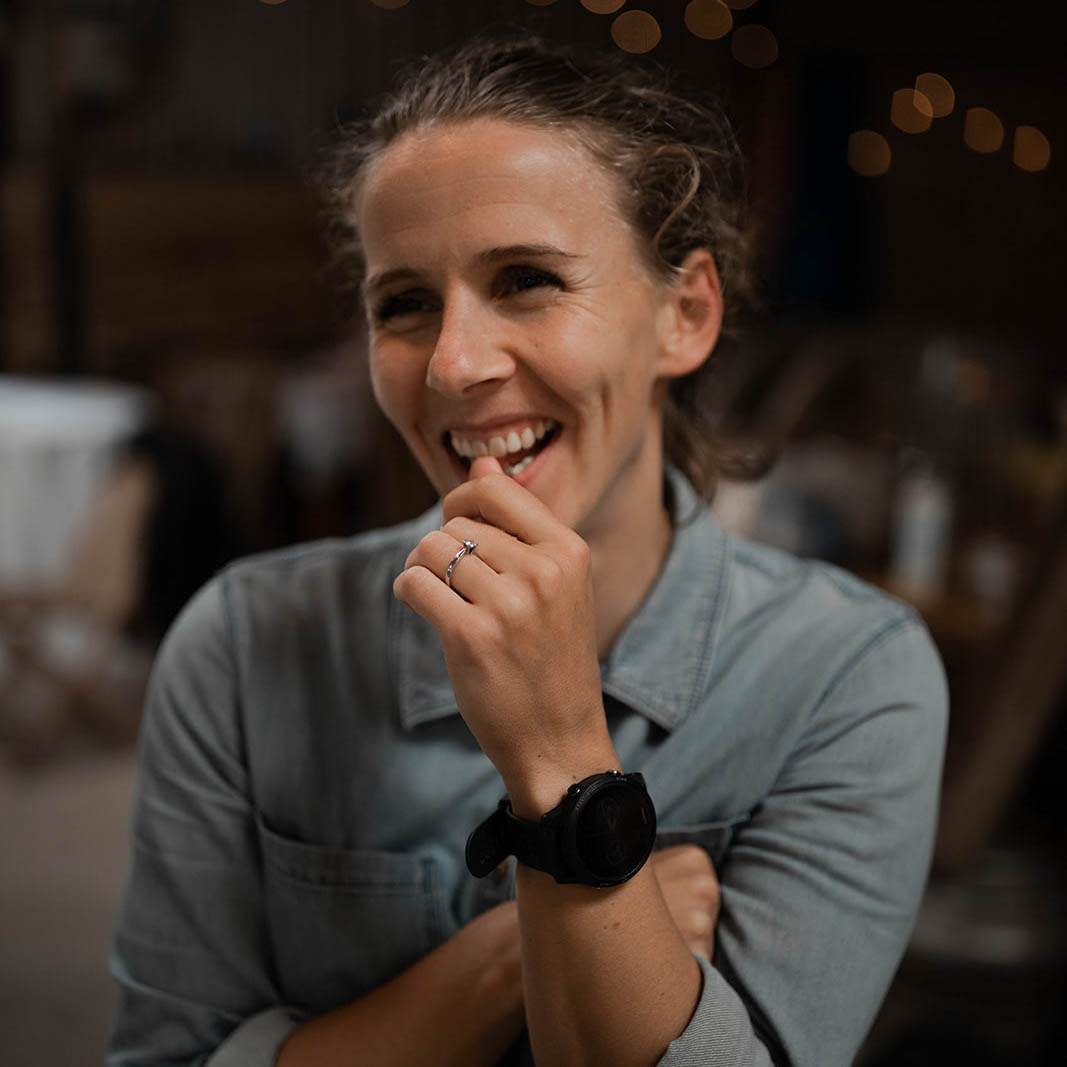
About Natasha Doff
Natasha Doff grew up in Scotland and moved to Moscow to work as a journalist after studying Russian at university. She loves swimming in very cold water and travelling to remote places, and discovered that bikepacking is a good way to combine the two. In Russia, she mostly spends her winters swimming in ice holes and her summers exploring Siberia, Central Asia, and the Caucasus by bike with her husband Andy. Follow her on Instagram @natasha_doff.
Please keep the conversation civil, constructive, and inclusive, or your comment will be removed.



